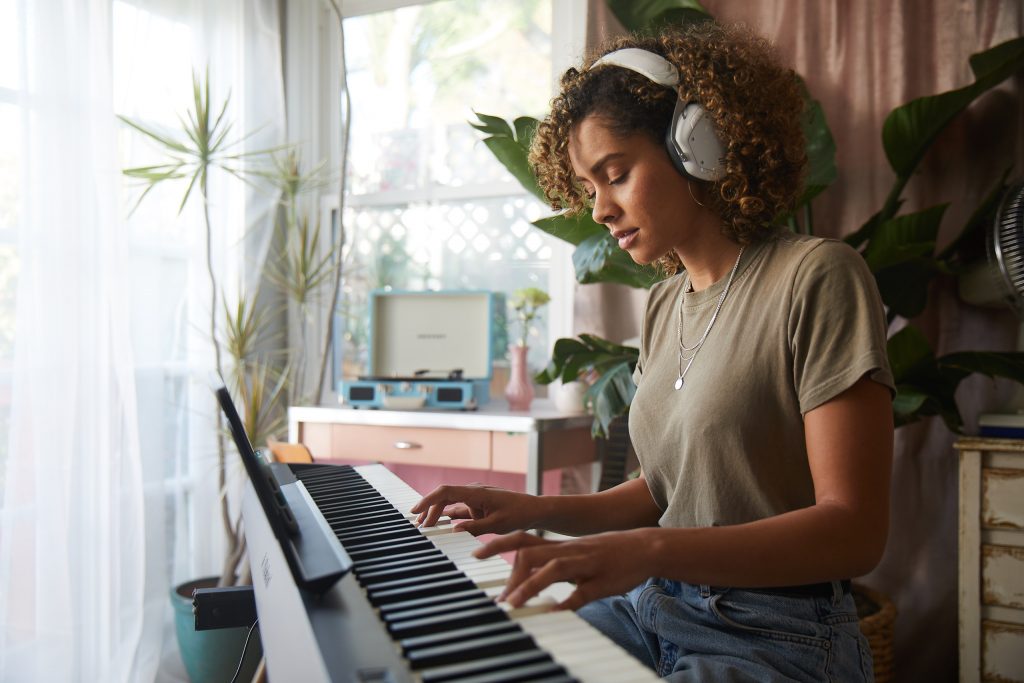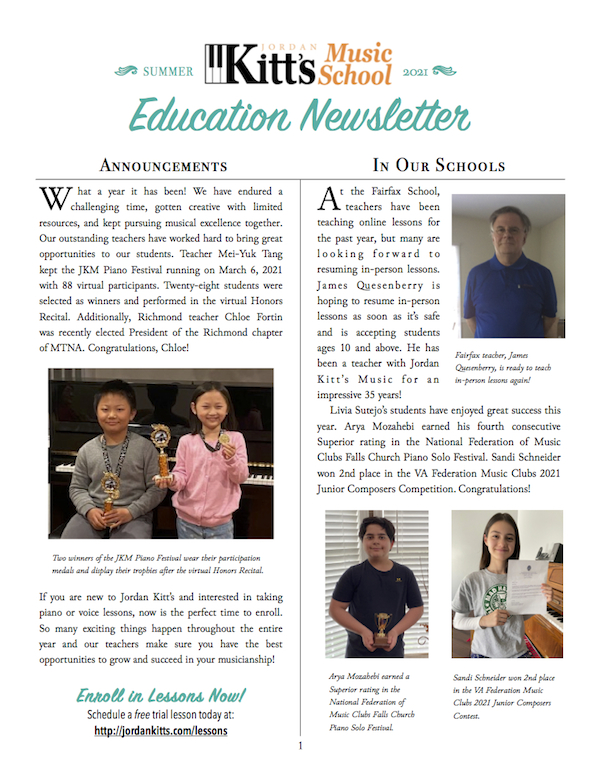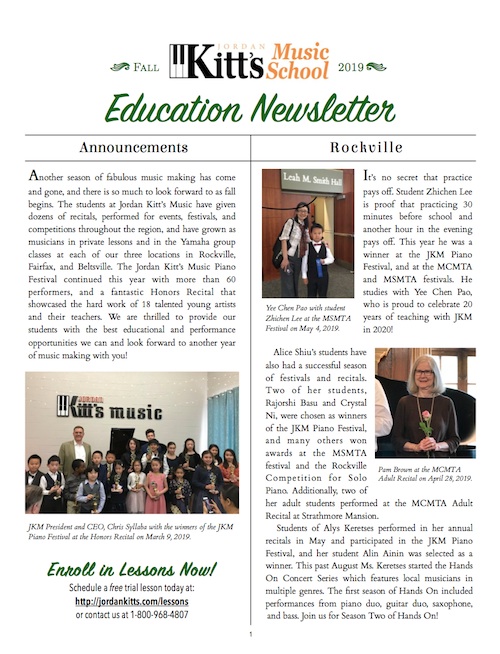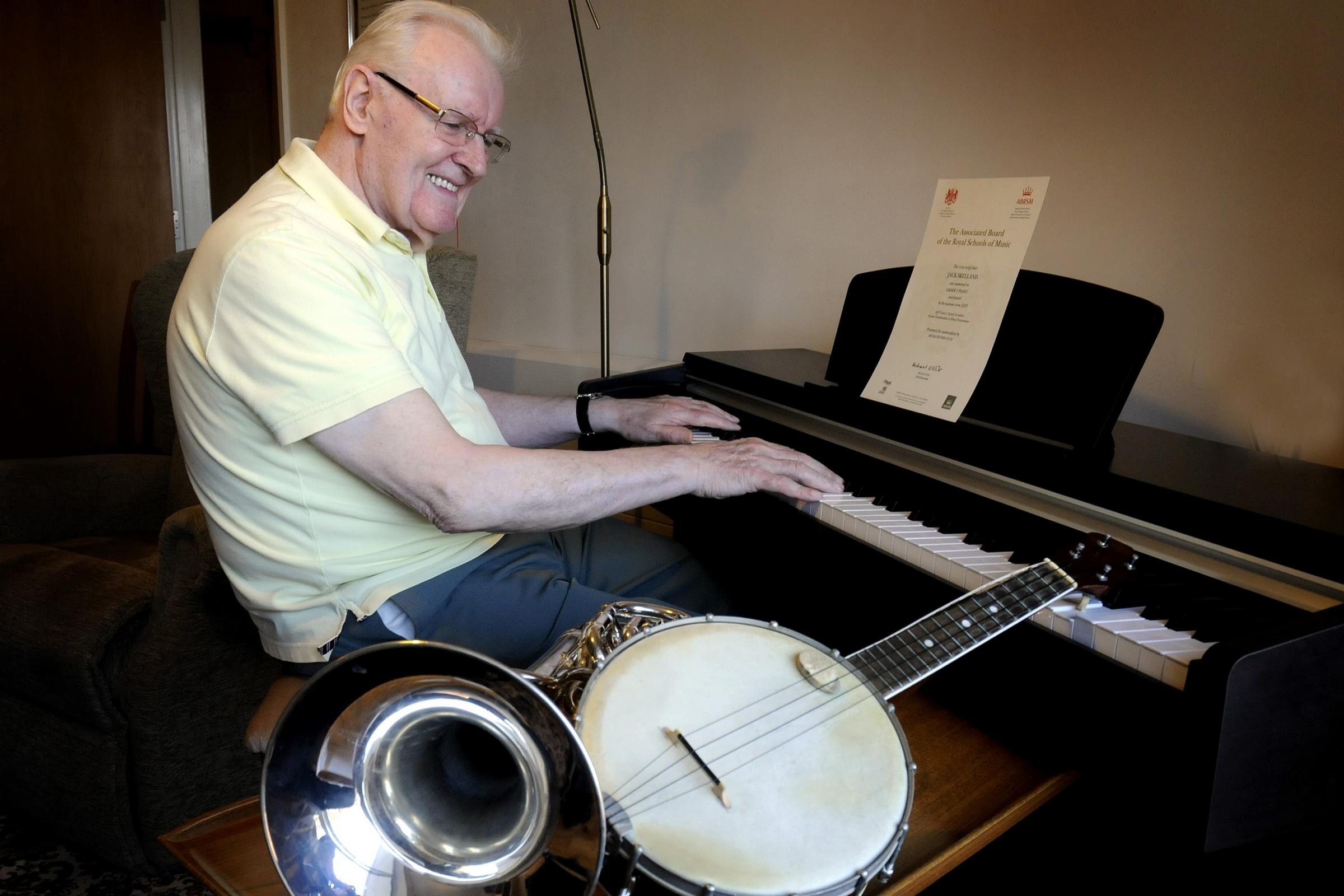(via Roland)
The piano can excite, move, and inspire; whether you’re playing Chopin’s Scherzos or the intro to “Clocks” by Coldplay. The only obstacles are learning how to play in the first place and practicing enough to play well. Enlisting a qualified piano teacher gives you a strong start in establishing good techniques and avoiding bad habits. Digital pianos can make learning more enjoyable.
The Benefits of Learning on a Digital Piano
The benefits of learning on a digital piano are significant. Below we discuss some of the standout features that make a digital piano the perfect fit for most homes.
Before we begin, note that a modern digital piano is designed to accurately simulate an acoustic piano. Instead of hammers and strings, there are strategically-positioned speakers which produce a convincing and organic piano sound. Weighted keys recreate the feel of an acoustic keyboard for realistic playing experience. Also, the ability to change the sounds keeps learning varied and interesting. Some digital pianos even let you create your sounds to suit your taste.
Practice in Peace with Headphones
Most digital pianos let you plug in headphones. This can benefit both the learner and the people they live with. As well as avoiding distraction, headphones can block noise nuisance leaving you free to concentrate on private practice. Twin headphone sockets allow students and teachers to listen closely, spotting mistakes more accurately.
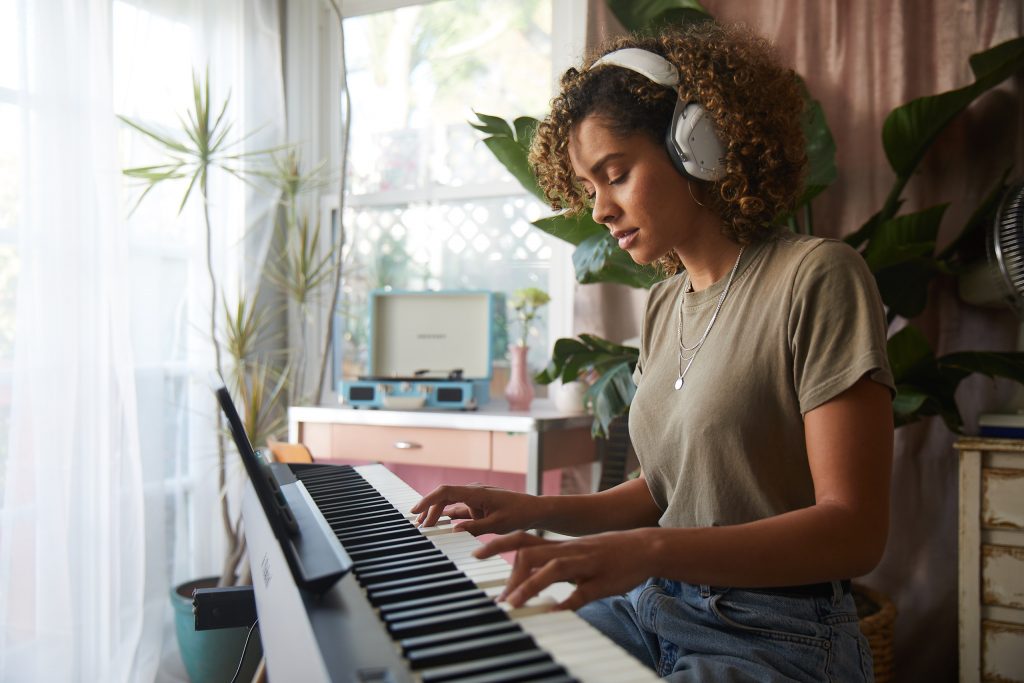
Develop your Sense of Rhythm with a Metronome
Timing is essential to playing the piano well. This is often an issue for beginners as they are still developing muscle and mental memory. It is useful to slow down or speed up depending on the level of difficulty.
Metronomes help develop your rhythmic and timekeeping skills. For instance, you can flick between settings and tempos on the metronome and slow pieces down to learn and master them. They can also be useful for more advanced time signatures.
Record and Listen to Your Performance
Recording your performance helps analyze exactly what’s going on in your playing. This will help identify your strengths and weaknesses. Digital pianos allow you to play back, perfect, and pick out any problems, nipping bad habits in the bud before they become ingrained.
Listening back to a recording can resolve issues with timing and performance. If you have a good memory, but struggle to read music, you can learn a piece by ear and study the music while listening back to your recording.
A digital piano allows you to transfer your performance to a computer, edit it, and print out a score. This allows others to read and play it too. Sheet music is useful if you’re interested in composition. You can quickly record ideas as they come to you.
Keep Practice interesting with Different Sounds
One of the benefits of learning on a digital piano is the variety of sounds available. For example, there are typically five to 10 types of piano, electric pianos from the ’70s and ’80s, strings, harpsichord, church, and electronic organs. Some even have synth sounds for even greater versatility.
It’s great to be able to learn Scarlatti pieces using a convincing harpsichord sound. A change in tone can inspire you and help recapture the passion if those fingering drills are becoming tiresome. Younger children also love experimenting and mixing sounds to make learning more exciting.
Use Apps to Improve Ability
A key advantage of learning on a digital piano is the access to online apps. Apps can help liven up practice and improve your playing. For example, Apps for sight-reading skills ask the pianist to identify written notes. Flashcard-style apps help with understanding music theory. Aural training apps develop abilities such as listening for particular scales or intervals.
A tablet device is particularly useful here as it allows quick access to electronically stored sheet music. When linked to your digital piano, some apps display a piece of music and listen to you play, before moving to the next page when you reach the last bar. Kids apps include fun games to learn a song, play together or freestyle to make practicing a pleasure rather than a chore.
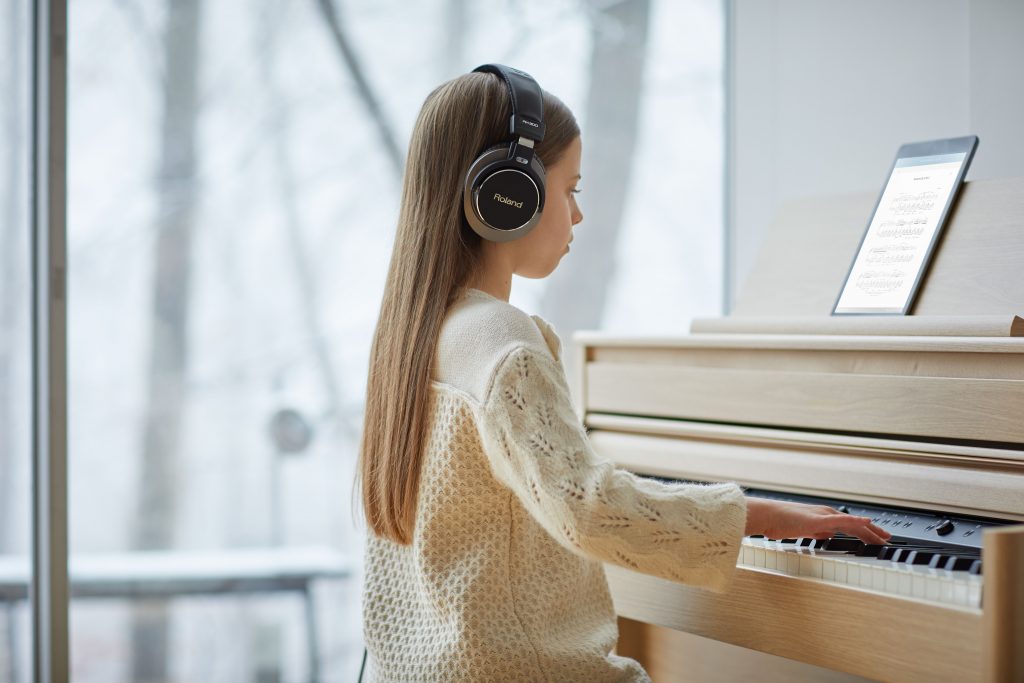
Set Time Aside to Practice
It’s always difficult to learning something new. So, it’s crucial to put in dedicated time and effort. Just 20 minutes of piano practice a few days a week can help develop your skills and techniques. If you’re struggling with motivation, playing with others—even making mistakes together—is a great way to stay motivated. Digital pianos are packed with features that maximize your practice. You’ll achieve more in a shorter time.
Taking the Next Step
Learning the piano involves dedication and discipline. However, once mastered, the rewards are endless. A digital piano can offer a variety of sounds, useful practice features, and integration with the latest apps. Most importantly, you’ll get all of this without the worry about ongoing tuning and maintenance costs.
Digital Piano Advantages
- Maintenance-Free: A digital piano doesn’t use hammers and strings to produce a sound so no tuning is required
- Headphone Support: Practice any time of day, perfect your performance, and keep the neighbors happy
- Touch and Sound Quality: Speakers are strategically positioned to recreate an acoustic piano sound
- Record and Edit: A useful way to analyze your performance
- Built-in Metronome: Helps develop rhythmic ability
- App Integration: Helps develop ability and performance skills, keep you motivated and make learning fun for kids

